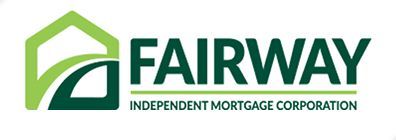What is a Bank Statement loan?
Bank Statement Loans for Self-Employed Buyers! A new way to finance a home purchase.

Introduction:
Dreaming of owning a home but struggling with traditional mortgage requirements due to self-employment? You're not alone. Many freelancers, small business owners, and independent professionals face challenges proving consistent income with standard documentation. Enter the bank statement loan, a powerful alternative designed for you.
This comprehensive guide will demystify alternative documentation mortgages, also known as alt doc loans, and empower you to understand how to leverage your bank statements to secure your dream home.
What is a Bank Statement Loan?
A bank statement mortgage allows qualified borrowers to obtain home financing by using bank statements to demonstrate their income, instead of relying on traditional pay stubs or tax returns.
"Bank statement loans provide a pathway to homeownership by assessing your financial health through your bank statements and financial history," explains Levon Galstyan, CPA, a leading financial expert. "This is especially beneficial for those whose tax returns don't accurately reflect their true earning potential."
Jake Hill, CEO of DebtHammer, adds, "Lenders analyze your financial activity to determine your risk level and ability to repay the loan, making it ideal for individuals with fluctuating income."
Who Benefits from Bank Statement Loans?
If you're self-employed, a bank statement loan could be your key to homeownership. Common beneficiaries include:
- Small Business Owners: Maximize your buying power beyond tax return limitations.
- Freelancers and Independent Contractors: Showcase consistent income through bank statements.
- Professionals (Doctors, Lawyers, Accountants, Real Estate Agents): Navigate income fluctuations and deductions.
- Gig Economy Workers: Prove your earnings with a comprehensive financial overview.
- Individuals with Irregular Income: Secure a mortgage despite non-traditional income patterns.
Why Self-Employed Buyers Choose Bank Statement Loans:
- Accurate Income Representation: "Tax returns often understate actual earnings due to deductions," notes Levon Galstyan. "Bank statements offer a clearer picture of your financial strength."
- Flexibility: Lenders can be more flexible with credit scores and documentation.
- Higher Loan Limits: Potentially access larger loans compared to conventional mortgages.
How to Qualify for a Bank Statement Loan (2024 Requirements):
Qualifying for a bank statement loan involves specific criteria, which may vary by lender. Here's a general overview:
- Bank Statements: Provide 12 to 24 months of personal or business bank statements.
- Self-Employment History: Demonstrate at least 24 months of self-employment, with potential exceptions for 12 months with prior industry experience. Provide a CPA letter as proof.
- Financial Reserves: Show sufficient cash or liquid assets to cover multiple mortgage payments.
- Professional Verification: Obtain a letter from your CPA or tax preparer validating your business expenses and independent contractor status.
- Asset Documentation: Provide records of other financial accounts (401(k), investments).
- Business License: Include proof of your business license, if applicable.
- Credit Score: Maintain a qualifying credit score (typically 500-620 or higher).
- Financial History: Ensure at least 24 months have passed since any foreclosure, bankruptcy, short sale, or deed-in-lieu.
- Down Payment: Prepare for a down payment of 10% to 20%.
Pros and Cons of Bank Statement Loans:
Pros:
- Increased Borrowing Power: Access higher loan amounts.
- Flexibility: Potentially lower credit score requirements.
- Versatility: Use for primary residences, investment properties, and second homes.
Cons:
- Higher Interest Rates: Expect potentially higher interest rates.
- Larger Down Payments: Plan for a significant down payment.
- Limited Lender Availability: Not all lenders offer these loans.
- Variable Underwriting: Each lender sets its own standards.
Key Considerations Before Committing:
- APR and Total Loan Cost: Carefully evaluate the annual percentage rate and overall loan expenses.
- Closing Costs: Thoroughly review all closing fees.
- Cash to Close: Understand the total cash required, including the down payment.
- Long-Term Costs: Calculate the total principal paid after five years.
- Payment Penalties: Inquire about late payment penalties.
- Repayment Deadlines: Clarify all repayment terms.
- Income Stability: Assess your future income sufficiency.
- Hidden Fees: Ensure full transparency of all costs.
- Loan Alternatives: Explore conventional or FHA loans if applicable.
Bank Statement Loan FAQs:
- Can I get a loan with bank statements? Yes, bank statement loans use bank statements to verify income.
- What credit score is needed? Typically 500-620, but varies by lender.
- What documents are required? Bank statements, self-employment history, financial reserves, CPA letter, asset records, business license, financial history, and a down payment.
The Bottom Line:
Bank statement loans open doors to homeownership for self-employed individuals. While they offer flexibility, weigh the pros and cons carefully. Consult with a knowledgeable lender to explore all options and create a tailored homeownership plan.
Key Takeaways:
- Bank statement loans are a viable alternative for self-employed homebuyers.
- Qualify using bank statements and asset verification.
- Expect potentially higher interest rates and down payments.
- Thorough research is critical.
Ready to explore your homeownership options? Contact a qualified lender today to discuss bank statement loans and find the best solution for your unique financial situation.
Phone: 717-431-9299
Text: 717-690-3928
Email: kenp@Fairway.com

